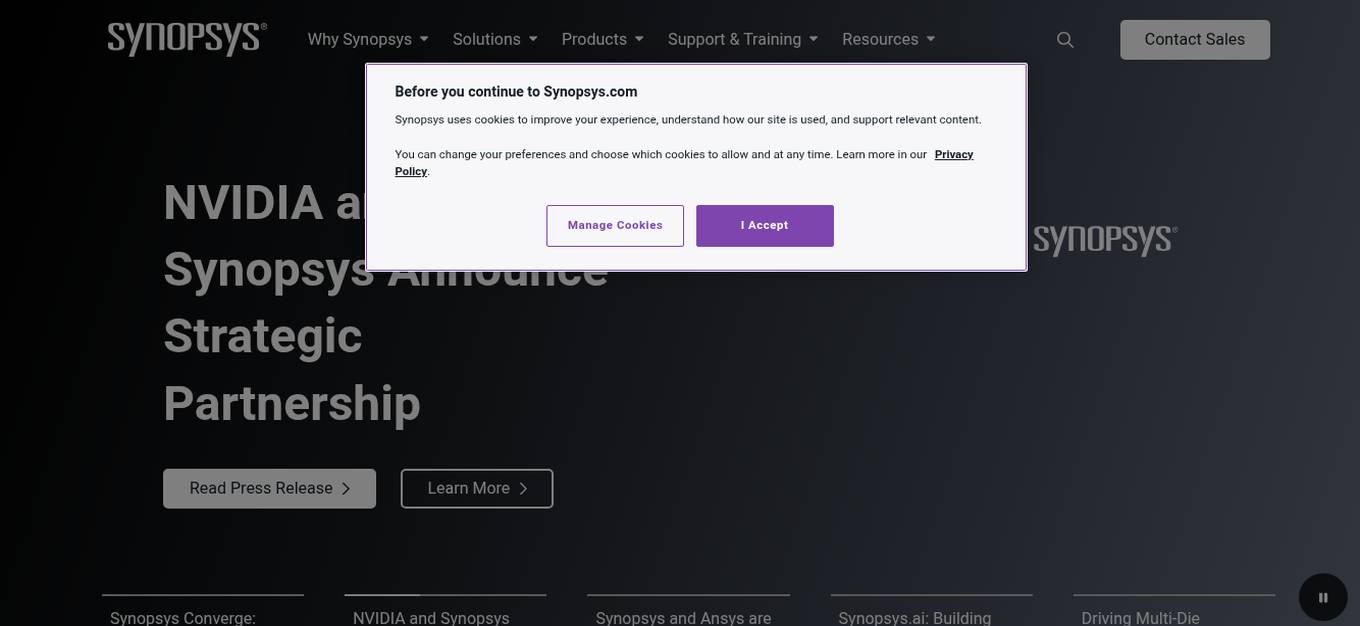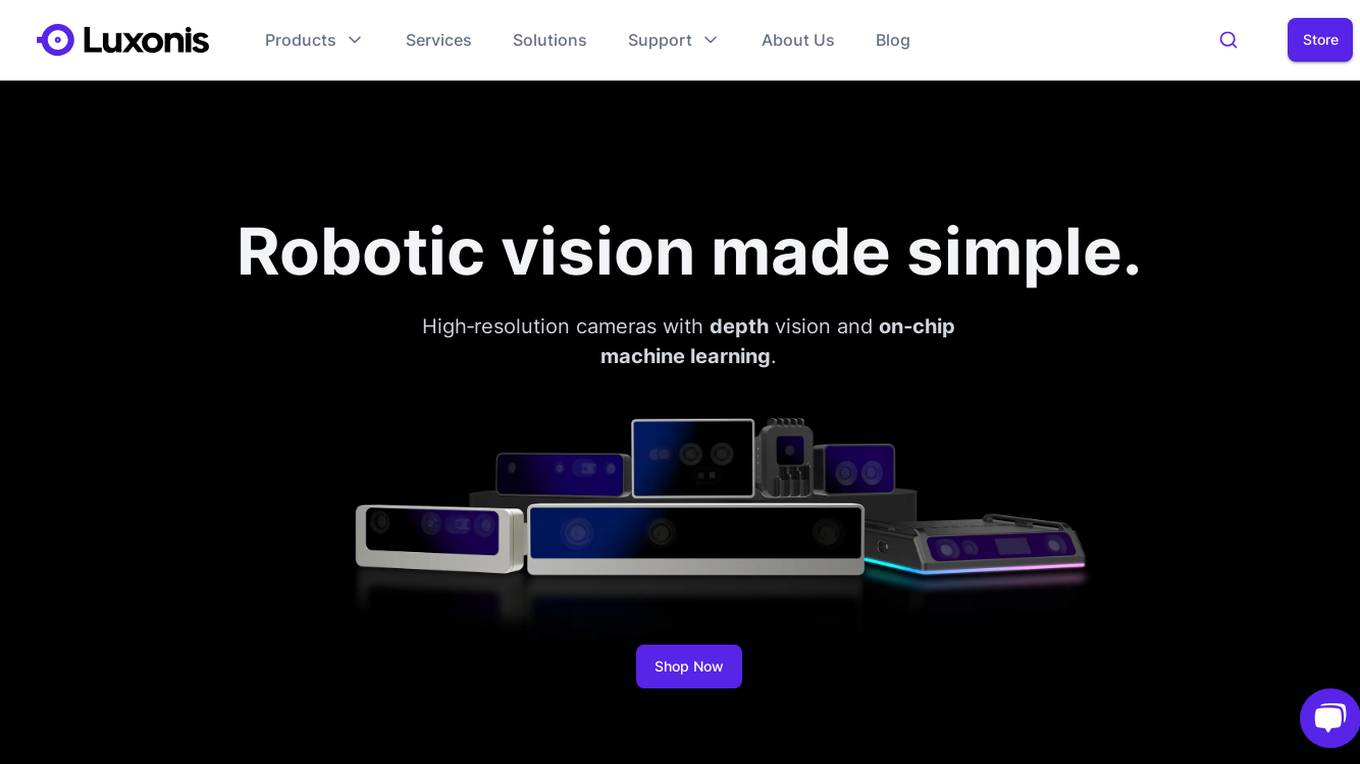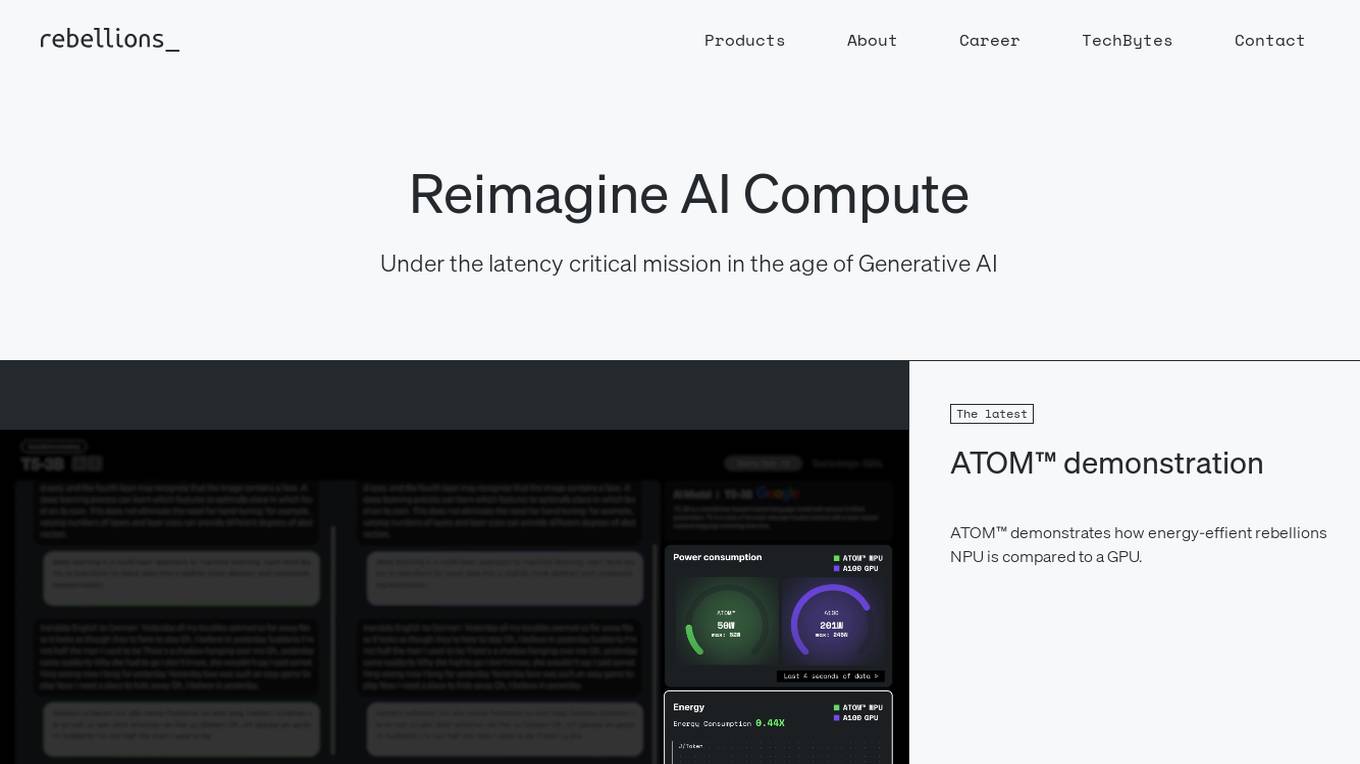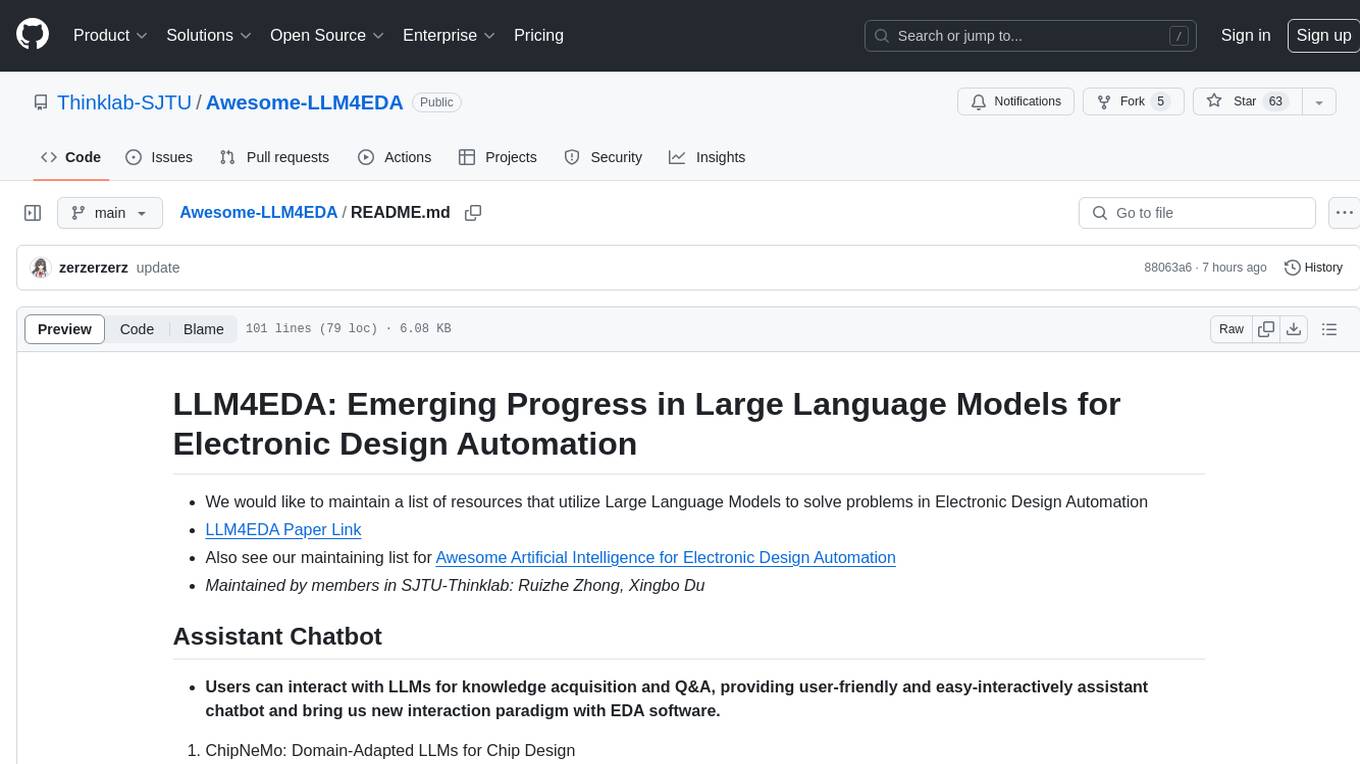Best AI tools for< Chip Design Engineer >
Infographic
7 - AI tool Sites

Synopsys.ai
Synopsys is an AI-enabled EDA (Electronic Design Automation) tool that offers design, automation, insights, optimization, analytics, and expert workflows for chip development. It provides a comprehensive suite of solutions for chip design, verification, test, and production, catering to various industries such as automotive, aerospace, AI chip development, and more. Synopsys.ai focuses on fast heterogeneous integration and industry-leading AI-powered workflow optimization to help users achieve first-pass silicon success and accelerate innovation.

Luxonis
Luxonis is a platform that offers robotic vision solutions through high-resolution cameras with depth vision and on-chip machine learning capabilities. Their products include OAK Cameras and Modules, providing features like Stereo Depth Sensing, Computer Vision, Artificial Intelligence, and Cloud Management. Luxonis enables the development of computer vision products and companies by offering performant and affordable hardware solutions. The platform caters to enterprises and hobbyists, empowering them to easily build embedded vision systems.

Axelera AI
Axelera AI is an AI tool that offers datacenter performance and edge efficiency through AI accelerators and AI processing units. The platform provides hardware and software solutions for accelerating inference at the edge, bringing data insights and analytics to various industries such as industrial manufacturing, retail, security, healthcare, smart cities, robotics, agriculture, and computer vision. Axelera AI aims to boost AI applications' performance with cost-effective and efficient inference chips, seamlessly integrating into innovations to enhance customer focus.

Rebellions
Rebellions is an AI technology company specializing in AI chips and systems-on-chip for various applications. They focus on energy-efficient solutions and have secured significant investments to drive innovation in the field of Generative AI. Rebellions aims to reshape the future by providing versatile and efficient AI computing solutions.

Groq
Groq is a fast AI inference tool that offers GroqCloud™ Platform and GroqRack™ Cluster for developers to build and deploy AI models with ultra-low-latency inference. It provides instant intelligence for openly-available models like Llama 3.1 and is known for its speed and compatibility with other AI providers. Groq powers leading openly-available AI models and has gained recognition in the AI chip industry. The tool has received significant funding and valuation, positioning itself as a strong challenger to established players like Nvidia.

RPRP AI
RPRP AI is a virtual friend and role-playing AI chat platform that allows users to create their own AI characters and engage in interactive storytelling experiences. Users can explore public chats shared by the community, utilize the Memory Chip feature to enable AI to remember everything, and interact with a variety of AI characters with unique personalities and storylines. The platform offers a diverse range of scenarios and characters for users to engage with, creating immersive and personalized role-playing experiences.

SiMa.ai
SiMa.ai is an AI application that offers high-performance, power-efficient, and scalable edge machine learning solutions for various industries such as automotive, industrial, healthcare, drones, and government sectors. The platform provides MLSoC™ boards, DevKit 2.0, Palette Software 1.2, and Edgematic™ for developers to accelerate complete applications and deploy AI-enabled solutions. SiMa.ai's Machine Learning System on Chip (MLSoC) enables full-pipeline implementations of real-world ML solutions, making it a trusted platform for edge AI development.
1 - Open Source Tools

Awesome-LLM4EDA
LLM4EDA is a repository dedicated to showcasing the emerging progress in utilizing Large Language Models for Electronic Design Automation. The repository includes resources, papers, and tools that leverage LLMs to solve problems in EDA. It covers a wide range of applications such as knowledge acquisition, code generation, code analysis, verification, and large circuit models. The goal is to provide a comprehensive understanding of how LLMs can revolutionize the EDA industry by offering innovative solutions and new interaction paradigms.
1 - OpenAI Gpts

Chip
"Chip" refers to the chip on this bot's shoulder. he's...not friendly. But he's still helpful, even when he's insulting you.